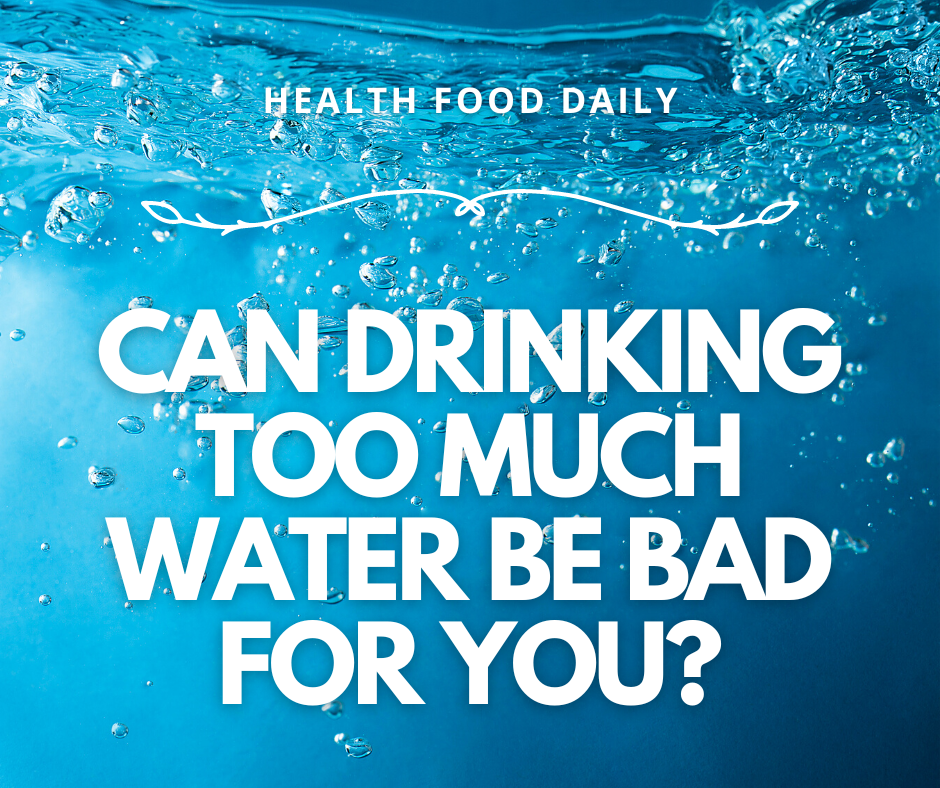

Everybody always tells you to stay hydrated and drink lots of water to cut calories and have a healthy body, but is there such a thing as drinking too much water? Can too much of a good thing be detrimental to our health?
Yes, it does! Drinking too much water leads to a condition called overhydration which is just as bad as dehydration. Let’s discuss this further.
Is Drinking Too Much Water Bad for You?
Dehydration causes some dangerous things in your body. Perhaps the most dangerous of all is the increased pressure in your brain, causing things like confusion and headaches. It’ll feel like you’re drunk on the water! Since this affects the brain, this affects the rest of your body as well—prolonged overhydration can cause high blood pressure, low heart rate, and other cardiovascular conditions.
Overhydration also causes hyponatremia. This is a lack of sodium in the body. This element is responsible for maintaining healthy cells, so if you have too little of it, you risk getting seizures, being put in a coma, or even dying from water poisoning!
All in all, overhydration is very dangerous.
What are the Signs of Drinking Too Much Water?
Not sure if you’re drinking more water than your body can handle? Check for the signs with these symptoms below.
1. Clear-Colored Urine
Perhaps the best way to check how much water your body needs is through the color of your urine. Ideally, your pee should be a pale yellow due to urochrome—this is excrement coming from your liver’s bile and hemoglobin—and water. If your pee is dark yellow, that means there’s too much urochrome and not a lot of water to help flush it out. If your pee is clear, that means there’s so much water without anything to extract.
2. Frequent Urination
Getting up to urinate five to six times a day is normal, but doing it more than ten times is pushing it a little unless you drink lots of coffee or frequently do high-intensity workouts. If it seems like you’re peeing out all the water you just drank a few minutes ago, that’s a sign your body doesn’t need that excess water.
3. Nausea and Vomiting
If you have too much water in your system, your kidneys have a hard time flushing it out. Excess water starts floating in the body and around your cells, making you feel nauseous and woozy. Indeed, the symptoms of overhydration are eerily similar to that of dehydration!
4. Drinking Water When Bored
Similar to how some people eat when they’re bored, some people also drink water when they’re bored. Thus, you should always be mindful whenever you take a sip.
Don’t worry, if your body needs water, it’ll let you know.
5. Painful Headaches
When you have too much water in your system, the excess water makes its way to your cells, including your brain cells. This causes them to swell up and grow, pressing into your cranium and causing excruciating headaches. This is what makes overhydration particularly dangerous—it can lead to brain impairment which then affects the rest of your bodily functions.
6. Skin Discoloration
When your cells swell, so will your skin. This difference will be more noticeable in your hands, feet, and lips. Besides that, the color of your skin will also change, making your hands, feet, and lips discolored from the rest of your body.
7. Muscle Fatigue
Your cells keep electrolytes in the body. These help your muscles move and contract. When you drink too much water, the water flushes the electrolytes out of your body. Your cells will then have nothing to contract your muscles with, thereby causing muscle fatigue.
8. Tiredness
Because your kidneys are working double-time to get rid of the excess water in your body, your body’s going to feel very tired. Additionally, this extra work releases hormones that make you feel tired and stressed, making the fatigue even worse!
How Much Water Should You Actually Drink Per Day?
How much you should drink a day is totally dependent on your diet and lifestyle. It’ll depend on your physical activity (people who work out more need more water), climate (people who live in warmer areas need more water), body weight (people who weigh more need water), and sex (men need more water).
Generally, though, women need about 91 oz (2.7 L) while men need about 125 oz (3.7 L) of water a day. If you need more or less, your body will let you know.

